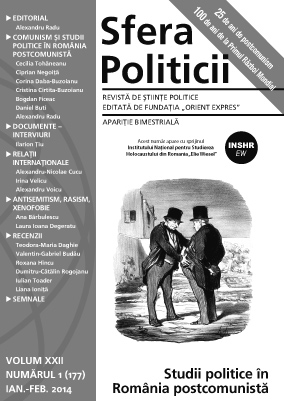Balanţa de putere în teoria neorealistă a lui Waltz, după Războiul Franco-Prusac și unirea Germaniei
Balance of power in Waltz's neorealist theory, after the Franco-Prussian War and the unification of Germany
Author(s): Alexandru VoicuSubject(s): Politics / Political Sciences
Published by: Fundaţia »Societatea Civilă« (FSC)
Keywords: balancing; parsimony; self-help; anarchy; hegemony
Summary/Abstract: The neorealist theory developed by Kenneth Waltz is one of the most important theories of international relations. The most significant predictions of his theory is that the balancing behavior is a systemic product, which will occur regularly in international relations whether the states want it or not. This papers aims to bring a critical perspective on the concept of balancing as it is developed by Waltz. Therefore, the prediction made by Waltz will be tested against the international system developed at the end of the nineteenth century, particularly after the Franco-Prussian War. Finally, it will be concluded that the parsimony that is characterizing Waltz’s theory is inaccurate because it makes it on one hand irrefutable and on the other hand, it makes it inconsistent.
Journal: Sfera Politicii
- Issue Year: XXII/2014
- Issue No: 177/1
- Page Range: 78-85
- Page Count: 8
- Language: Romanian

